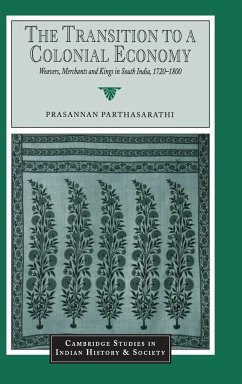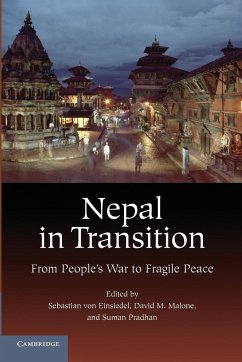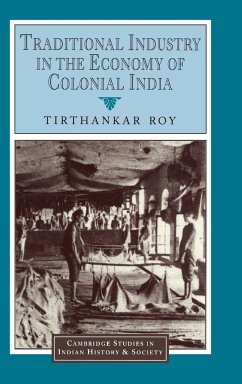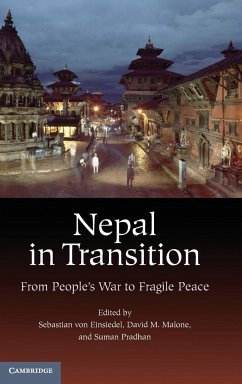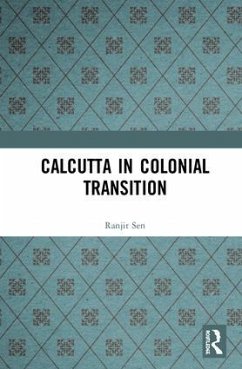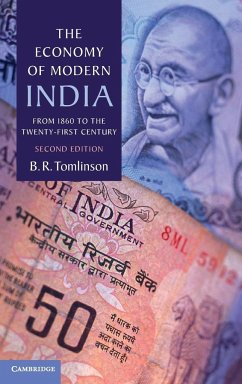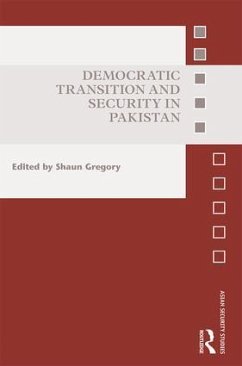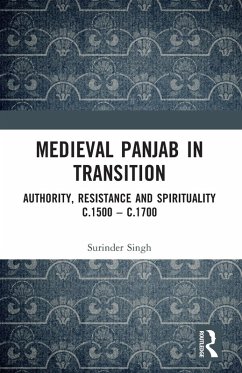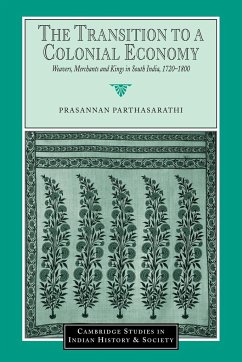
The Transition to a Colonial Economy
Weavers, Merchants and Kings in South India, 1720 1800
Herausgeber: Bayly, Christopher Alan; Chandavarkar, Rajnarayan
Versandkostenfrei!
Versandfertig in 1-2 Wochen
53,99 €
inkl. MwSt.
Weitere Ausgaben:

PAYBACK Punkte
27 °P sammeln!
The decline of the economic fortunes of the Indian labouring classes under the British.According to widespread belief, poverty and low standards of living have been characteristic of India for centuries. Challenging this view, Prasannan Parthasarathi demonstrates that, until the late eighteenth century, labouring groups in South India, those at the bottom of the social order, were in a powerful position, receiving incomes well above subsistence. The decline in their economic fortunes, the author asserts, was a process initiated towards the end of that century, with the rise of colonial rule. B...
The decline of the economic fortunes of the Indian labouring classes under the British.
According to widespread belief, poverty and low standards of living have been characteristic of India for centuries. Challenging this view, Prasannan Parthasarathi demonstrates that, until the late eighteenth century, labouring groups in South India, those at the bottom of the social order, were in a powerful position, receiving incomes well above subsistence. The decline in their economic fortunes, the author asserts, was a process initiated towards the end of that century, with the rise of colonial rule. Building on revisionist interpretations, he examines the transformation of Indian society and its economy under British rule through the prism of the labouring classes, arguing that their treatment by the early colonial state had no precedent in the pre-colonial past and that poverty and low wages were a product of colonial rule. The book promises to make an important contribution to the economic history of the region, and to the study of colonialism.
Review quote:
'(?)0; an excellently written well-researched narrative of weavers' response to company power in south India.' The Economic History Review
'This book is a significant contribution to the literature on pre-colonial and colonial political-economic formations in India, particularly South India.' Hira Singh
Table of contents:
List of tables; Acknowledgements; Note on Indian words and place names; Note on money; List of abbreviations; Introduction; 1. Weavers and merchants 1720(?)1;1760; 2. Agriculture and cotton textiles; 3. Weaver distress 1765(?)1;1800; 4. Weaver protest; 5. Labourers, kings and colonialism; Glossary; Bibliography; Index.
According to widespread belief, poverty and low standards of living have been characteristic of India for centuries. Challenging this view, Prasannan Parthasarathi demonstrates that, until the late eighteenth century, labouring groups in South India, those at the bottom of the social order, were in a powerful position, receiving incomes well above subsistence. The decline in their economic fortunes, the author asserts, was a process initiated towards the end of that century, with the rise of colonial rule. Building on revisionist interpretations, he examines the transformation of Indian society and its economy under British rule through the prism of the labouring classes, arguing that their treatment by the early colonial state had no precedent in the pre-colonial past and that poverty and low wages were a product of colonial rule. The book promises to make an important contribution to the economic history of the region, and to the study of colonialism.
Review quote:
'(?)0; an excellently written well-researched narrative of weavers' response to company power in south India.' The Economic History Review
'This book is a significant contribution to the literature on pre-colonial and colonial political-economic formations in India, particularly South India.' Hira Singh
Table of contents:
List of tables; Acknowledgements; Note on Indian words and place names; Note on money; List of abbreviations; Introduction; 1. Weavers and merchants 1720(?)1;1760; 2. Agriculture and cotton textiles; 3. Weaver distress 1765(?)1;1800; 4. Weaver protest; 5. Labourers, kings and colonialism; Glossary; Bibliography; Index.





